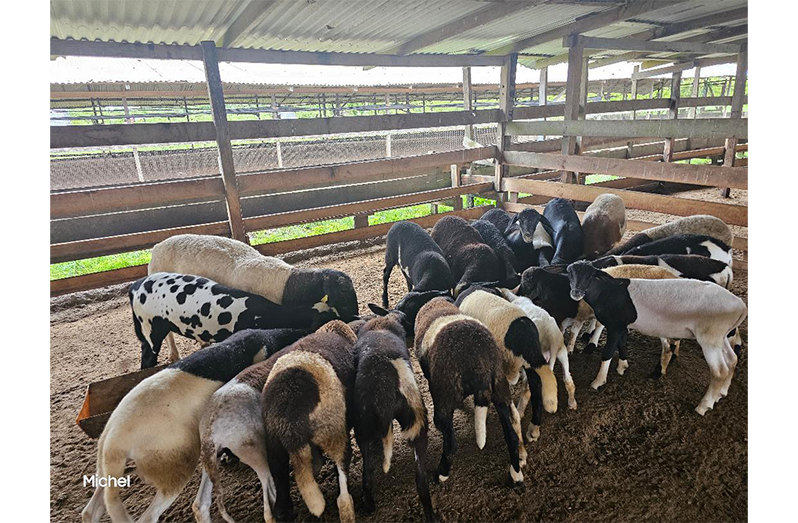IN the quiet village of Garden of Eden, where the morning breeze rustles through green fields and the day begins long before sunrise, Akram Inshanally walks the same lands his father once tended.
As a young boy, he followed his father through pens of sheep and the hum of farm life, learning lessons that would shape his future.
For Akram, farming was never simply a job; it was a love passed down through generations, a family legacy that grew with him, and eventually became his life’s calling.
Today, he is recognised as one of Guyana’s most respected small ruminant breeders, supplying farmers across the country with high-quality sheep.
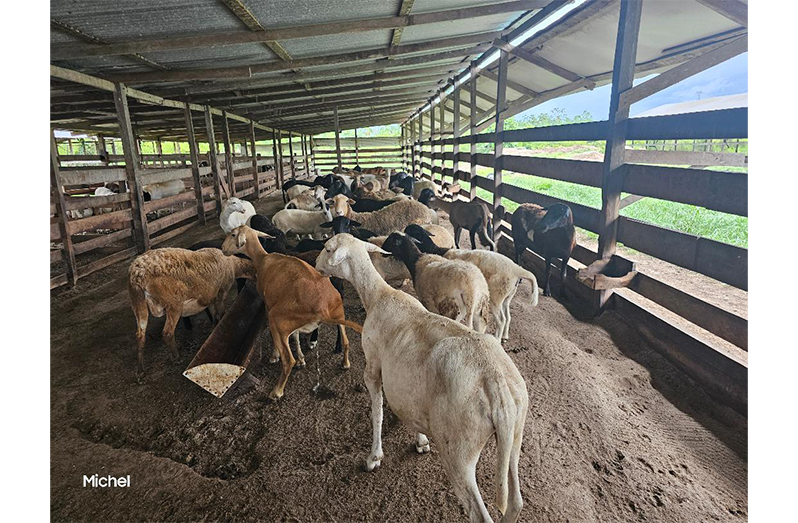
The settlement of Garden of Eden itself has a story that mirrors Akram’s dedication. Established in 1959, villagers obtained land from the colonial government, transforming it into housing and farm lots; a vision later supported by the late President Dr. Cheddi Jagan.
Blessed with fertile soils, lush greenery, and fruit trees that many believe inspired its biblical name, the area quickly grew into a thriving farming community.
Today, it is known for large-scale poultry, cash crops, and cattle and small ruminant rearing. Akram’s farm sits at the heart of this rich agricultural heritage, carrying forward a legacy rooted in the land.
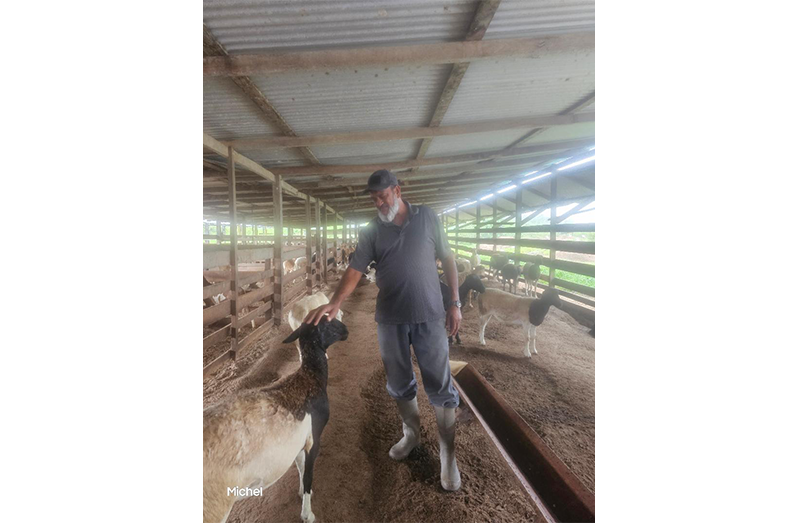
“I’ve always loved animals,” Akram recalls. “Sheep and chickens started as a hobby, but when I realised it agreed with me, I took it seriously.”
That childhood curiosity has blossomed into a thriving enterprise. Although he paused sheep rearing for a few years, he returned to it full-time in 2008, gradually building his farm into the success it is today.
The defining moment came with the introduction of the Dorper breed into his flock. Initially, Akram sourced improved animals himself and implemented a strict breeding programme to strengthen his genetics.
Through personal research, traditional knowledge passed down from his father, and guidance from the Guyana Livestock Development Authority (GLDA), the Dorper became the cornerstone of his breeding programme, helping him achieve 70 per cent Dorper genetics while improving growth, resilience, and overall quality.
While he is a recipient of a Dorper ram from GLDA under the National Genetics Improvement Programme, Akram is also a strong advocate for the government’s efforts to bring more top-quality breeds into the country.
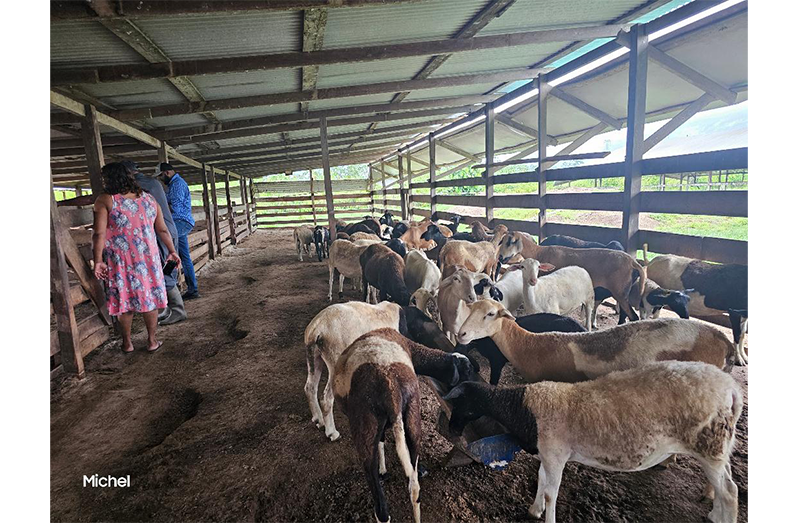
“If we can get more top-breed animals into Guyana, farmers will benefit. It will spur growth in the industry,” he emphasises.
His own success—propelled in part by GLDA’s improved Dorper breed—now stands as living proof of the transformative impact of upgraded genetics on farmers across Guyana.
Now, Akram manages 95 high-quality sheep, focusing on Dorper-mix breeding rams prized for their fast growth and resilience. Farmers travel from Berbice, West Coast Demerara, and East Coast Demerara to purchase his rams, often weighing 100 pounds by seven months.
“Sometimes the demand is so high, it’s hard to keep stock,” he admits with a smile, reflecting both pride and the challenges of meeting nationwide demand.
Akram combines tradition with modern livestock management. His pens are well-ventilated, the lambing areas are spotless, and bedding is regularly refreshed with sand.
He keeps rams separate from ewes to avoid inbreeding and meticulously tracks each animal’s lineage.
“Good record-keeping is essential—it’s part of my traceability system,” he explains. “It helps me maintain the pedigree of every animal and ensures the integrity of the breeding programme.”
Coupled with careful feeding—grass, molasses, and specially formulated “Textile” feed—his sheep thrive, becoming sought-after nationwide.
But sheep are only part of his story. Akram has diversified his farm to make full use of his land. He tends a coconut plantation of over 1,450 trees of improved varieties. By efficiently managing this plantation, Akram meets the growing demand for fresh coconut water both locally and regionally, combining sustainable land use with profitable diversification.
Building on the same principles of careful planning and meticulous management, Akram has applied his expertise to his poultry operation, which is equally impressive.
As a contracted farmer for Royal Farms, he currently raises 73,000 chicks. He credits his success to precise animal husbandry practices, including proper brooding, well-ventilated pens, and high-quality chicks supplied by Royal Farms.
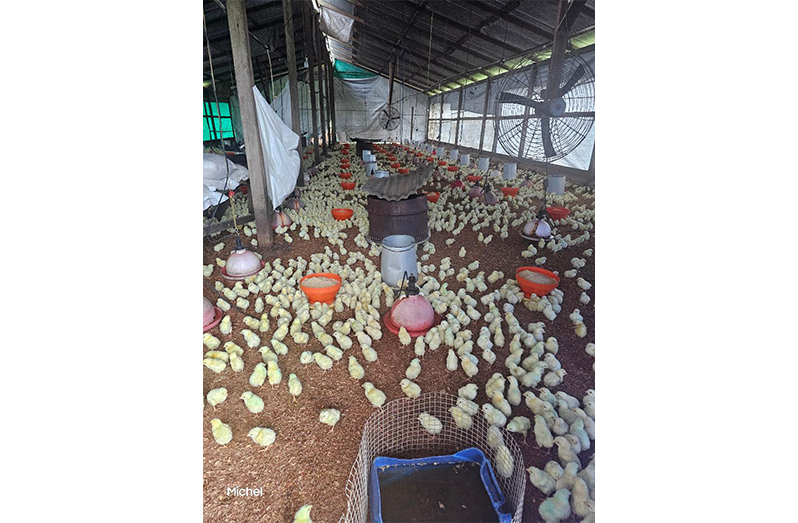
All birds are fully vaccinated to prevent mortality and ensure strong, healthy flocks. With this careful attention, Akram ensures local consumers have access to quality, locally produced chicken—especially during the busy holiday season.
Through it all, what brings Akram the greatest pride is seeing his sons embrace the family tradition. His eldest works alongside him daily, learning the intricacies of sheep breeding, coconut cultivation, and poultry management, while his younger son, still in school, joins whenever he can, eager to follow in his father’s footsteps.
“Having my sons engaged in farming is the best thing that has happened,” he says, his voice warm with pride.
For Akram, it is more than passing on skills—it is about instilling values of responsibility, patience, and respect for the land and animals.
Watching them grow, take ownership of tasks, and develop their own understanding of modern farming gives him hope that the legacy his father began will not only continue but also evolve.
With his sons by his side, improved genetics in his flock, and diversified operations that include coconuts and poultry, Akram is not just maintaining a family tradition—he is shaping the future of farming in Garden of Eden, ensuring the community he calls home will continue to nourish the nation for generations to come.



.jpg)




